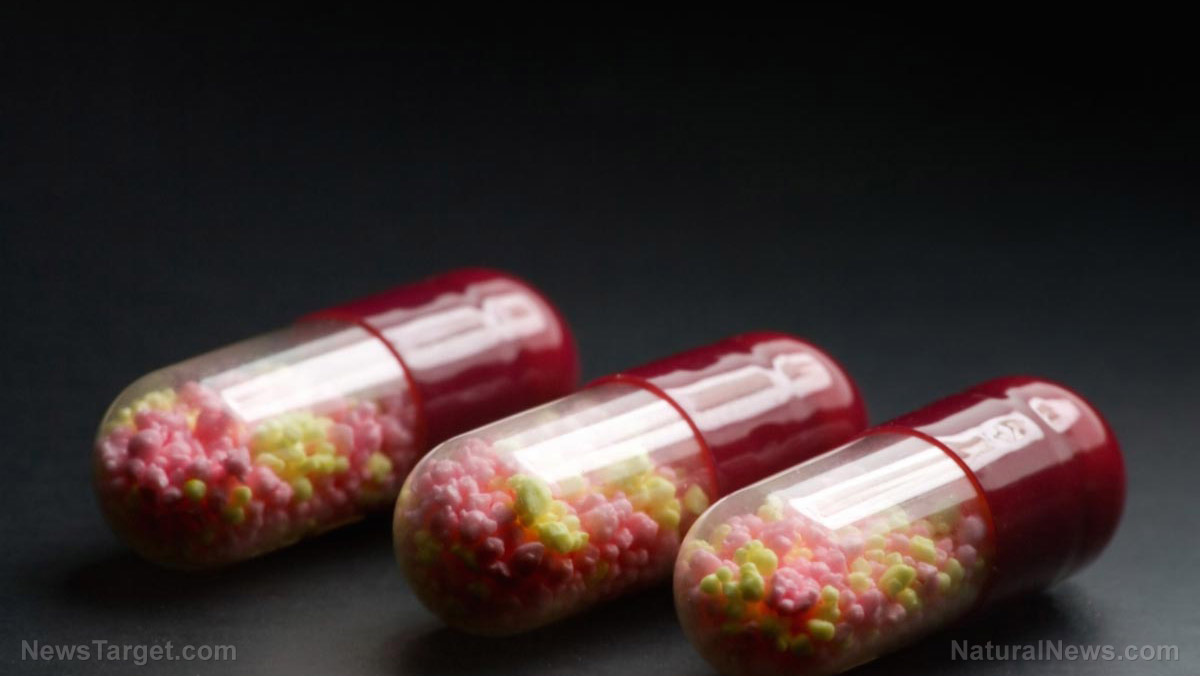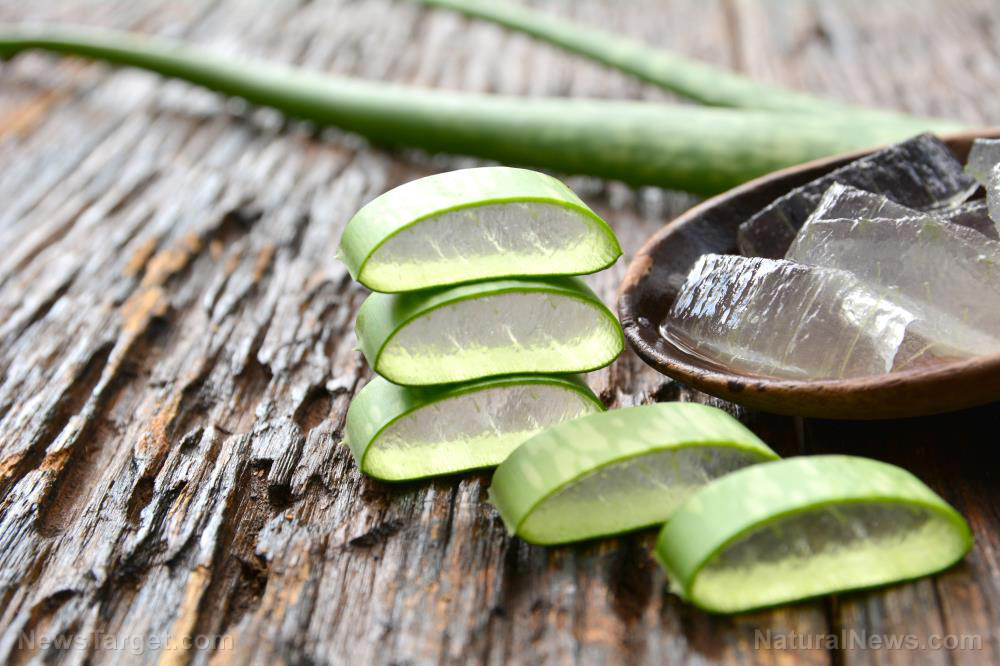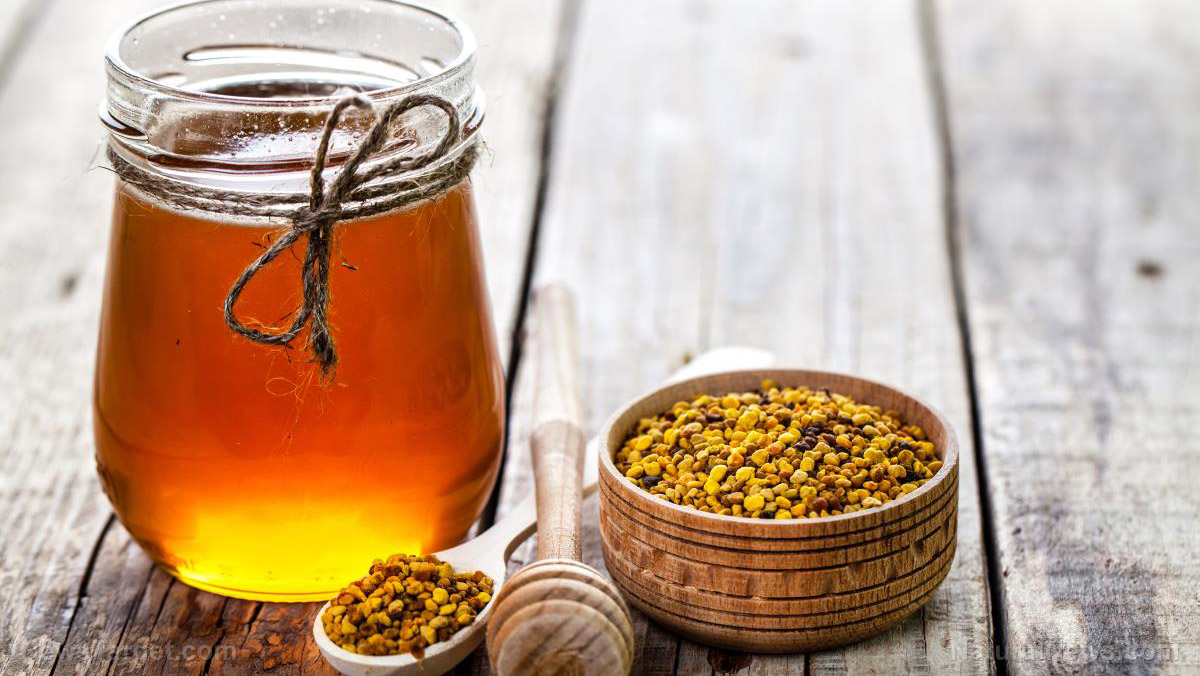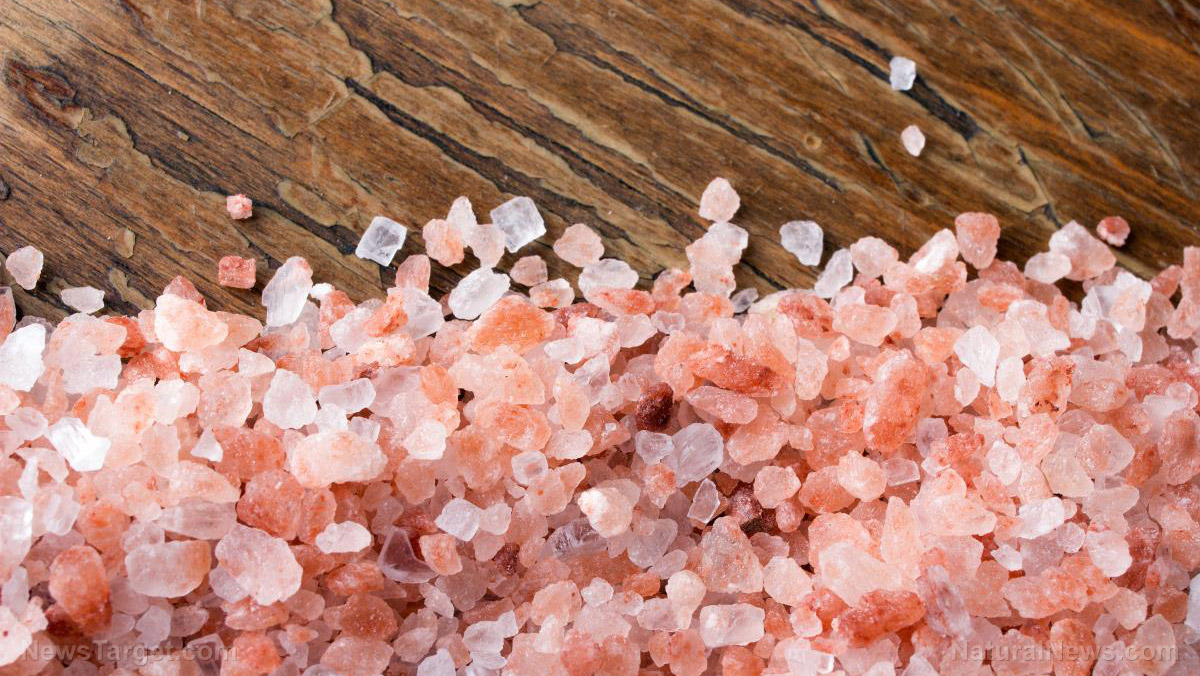Natural healing: Is thyme good for acne?
11/16/2022 / By Zoey Sky

There are many products that claim to treat or prevent acne and some people often prefer these store-bought products over natural remedies because they consider the latter ineffective.
Some kitchen ingredients are too harsh and should never be used on your face, like lemon juice, but if you want to naturally treat your breakouts without using harsh topicals or oral medications, you might benefit from using thyme, a popular spice.
One popular home remedy involves freezing thyme tea and rubbing it all over your face. But is this thyme acne remedy really effective?
In a viral TikTok video, creator @mzansinatural rubs a “thyme pop,” or frozen cube of thyme tea, on their skin and claims that this remedy is more effective than benzoyl peroxide, another product often used to prevent acne.
Benzoyl peroxide helps reduce breakouts by killing acne-causing bacteria on your skin. Benzoyl peroxide products are effective, but they can cause irritation, particularly if you have very sensitive skin. Benzoyl peroxide can also cause redness and physical discomfort if overused.
On the other hand, studies have shown that thyme essential oil has antibacterial and anti-inflammatory properties. Depending on how you use it, thyme may provide those beneficial properties without causing irritation. (Related: Use antioxidant-rich neem oil to address skin conditions like acne and eczema.)
How to use thyme to improve your skin health
If you want to try using thyme ice cubes, follow the recipe below:
You will need:
- 1 Cup water
- 1 Green tea bag
- 1 Teaspoon dried thyme leaves
- A pinch of pink Himalayan salt (optional, add if you have oily skin)
Steps:
- Boil the water and add the tea bag, thyme and pink Himalayan salt (if you’re using it).
- After boiling, strain the mixture and set the liquid aside to cool. Use the liquid as a toner after washing your face, but skip the salt because it can dry your skin.
- Alternatively, freeze the liquid in an ice cube tray.
- Take one thyme cube and rub it on your skin to help prevent acne.
Another option is to make your own blend using thyme essential oil. Combine several drops of thyme essential oil with a carrier oil like grapeseed or jojoba oil to dilute the concentration and prevent irritation.
Store the essential oil blend in a small jar or container. Before applying the thyme essential oil mixture to your face, do a patch test on your skin or scalp to check for a possible allergic reaction.
Thyme toner recipe
Here’s a thyme toner recipe that can help fight acne.
You will need:
- Fresh or dried thyme (Only use thyme that is organic and pesticide-free.)
- Witch hazel (Witch hazel is known as an astringent and antioxidant.)
- Coffee filter
- Glass jar
- Small container to store toner
Steps:
- Sterilize the steeping jar and fill it with witch hazel. Because witch hazel is astringent, it can help “tighten” your skin and lessen the release of oils. Witch hazel also helps lock in moisture.
- Add the thyme to the witch hazel in the jar and let it steep for a day or two in a cool dry place. When finished, the liquid will turn amber.
- Use the coffee filter to strain the liquid into the sterilized toner bottle.
Using the toner:
It’s best to make the thyme toner in small batches. Refrigerate the toner when not in use.
Use a pump-style bottle to avoid introducing bacteria to the mixture when you use it. To use the toner, pump the liquid onto a cotton ball and use it in trouble spots or gently wipe it across your whole face.
Other natural home remedies for acne
These other home remedies for acne include ingredients you may already have at home and are free from harsh chemicals often found in store-bought skin care products.
Aloe vera
Aloe vera is a tropical plant with large, spiky leaves that produce a clear gel. The moisturizing gel is often added to various products like creams, lotions, ointments and soaps.
According to a 2018 study, aloe vera is often used to treat abrasions, burns, rashes, skin inflammation and wounds. Aloe vera contains salicylic acid and sulfur, both of which are used extensively to treat acne. Data suggests that applying salicylic acid to the skin can help reduce acne.
Another study has shown that aloe vera gel, when combined with other substances like tretinoin cream or tea tree oil, could treat acne.
How to use aloe vera:
- Scrape the gel from the leave of an aloe plant with a spoon.
- Apply the aloe gel to clean skin as a natural moisturizer.
- Repeat once or twice a day, or as desired.
Alternatively, you can buy aloe vera gel from the store. Look for pure aloe products.
Apply apple cider vinegar (ACV)
Research has found that apple cider vinegar can help eliminate many types of bacteria and fungi.
Apple cider vinegar contains organic acids such as citric acid. A 2016 study reported that citric acid can kill P. acnes, the most abundant bacterium on human skin, in conjunction with zinc oxide.
Research from 2017 has shown that the lactic acid in apple cider vinegar may also improve the appearance of acne scars.
How to use apple cider vinegar:
- Mix one part apple cider vinegar and three parts water. Use more water if you have sensitive skin.
- After cleansing your face, use a cotton ball to apply the mixture to your skin.
- Let the ACV mixture sit for five to 20 seconds, then rinse with water and pat dry.
- Repeat this process once or twice a day, as needed.
Keep in mind that applying apple cider vinegar to your skin can cause burns and irritation. If you try this remedy, start with small amounts and dilute it with water.
Honey and cinnamon mask
Honey is a natural antibacterial and according to a 2017 study, the combination of honey and cinnamon bark extract exerted antibacterial effects against P. acnes.
Research from 2020 also suggested that on its own, honey can block the growth of or eliminate P. acnes. However, this finding doesn’t necessarily mean that honey effectively treats acne.
How to make a honey and cinnamon face mask:
- Mix two tablespoons of honey and one teaspoon of cinnamon to form a paste.
- After cleansing, apply the mask to your face. Leave the mask on for at least 10 to 15 minutes.
- Rinse the mask off completely and pat your face dry once done.
Tea tree oil
Tea tree oil is an essential oil that comes extracted from the leaves of Melaleuca alternifolia, a small tree native to Australia.
Data from a 2018 study revealed that applying tea tree oil to the skin may help reduce acne.
In a 2017 study, researchers reported that tea tree oil may be an effective substitute for topical and oral antibiotics that could cause bacterial resistance if used long-term.
Findings from a small 2019 study showed that, compared with benzoyl peroxide, volunteers using a tea tree oil ointment for acne experienced less dry skin and irritation. The volunteers also reported that they felt more satisfied with the treatment.
Like other essential oils, tea tree oil is very potent. Always dilute tea tree oil before applying it to your skin.
How to use tea tree oil:
- Mix one part tea tree oil with nine parts water.
- Dip a cotton swab into the mixture and gently dab it on the affected areas on your face.
- Apply moisturizer if desired.
- Repeat this process once or twice a day, as needed.
Try using thyme ice cubes to treat acne naturally.
Visit NaturalCures.news to learn more about thyme and other natural remedies for common skin problems.
Watch the video below to learn how thyme can also benefit your oral health.
This video is from the Natural Cures channel on Brighteon.com.
More related stories:
Beat cystic acne with these herbal treatments.
Antimicrobial properties of red ginseng make it a great natural cure for acne.
Get rid of your acne naturally with bitter aloe.
Sources include:
Submit a correction >>
Tagged Under:
acne, alternative medicine, cosmetics, essential oils, herbal medicine, Herbs, home remedies, natural cures, natural health, natural ingredients, natural medicine, Naturopathy, plant medicine, remedies, skin care, skin health, thyme
This article may contain statements that reflect the opinion of the author
RECENT NEWS & ARTICLES
COPYRIGHT © 2017 NATURALANTIBIOTICS.NEWS
All content posted on this site is protected under Free Speech. NaturalAntibiotics.news is not responsible for content written by contributing authors. The information on this site is provided for educational and entertainment purposes only. It is not intended as a substitute for professional advice of any kind. NaturalAntibiotics.news assumes no responsibility for the use or misuse of this material. All trademarks, registered trademarks and service marks mentioned on this site are the property of their respective owners.



















